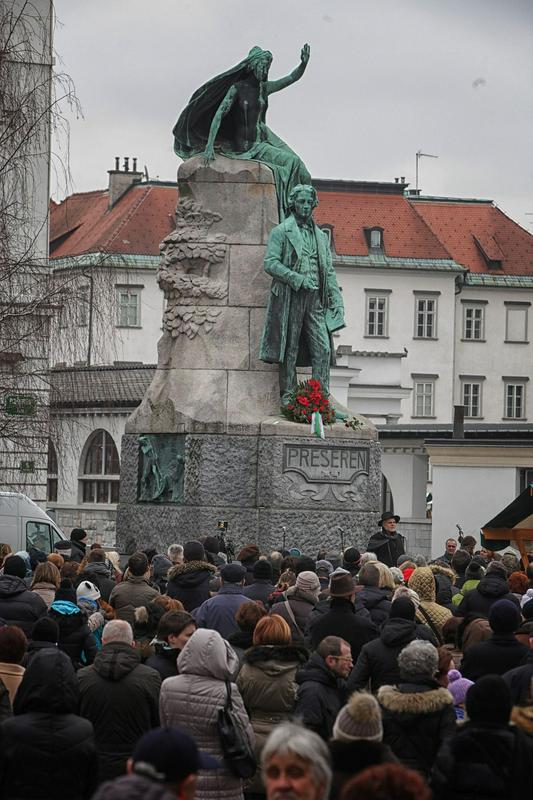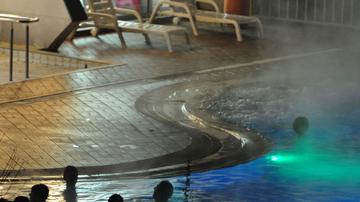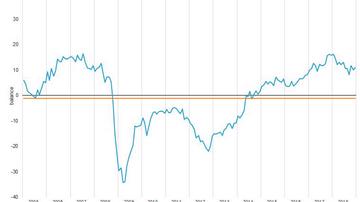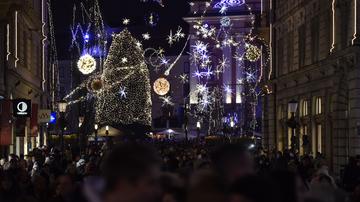
In 2015, 298 titles of poetry were issued in Slovenia, of which 78.5% by Slovene authors. 46 works were written for children and youth.
Since 1947 one female and 28 male poets won the Prešeren award, the highest national award for arts achievements in Slovenia: 13 male poets won the award for specific collections of poems, while 15 male poets and the female poet won the award for their opus. Two winners did not accept the award.
The observance of the World Poetry Day is also meant to encourage a return to the oral tradition of poetry recitals, to promote the teaching of poetry, to restore a dialogue between poetry and the other arts, and to support small publishers and create an attractive image of poetry in the media, so that the art of poetry will no longer be considered an outdated form of art, but one which enables society as a whole to regain and assert its identity. At this year’s poetry day Irina Bokova, Director-General of UNESCO, wrote: "By paying tribute to the men and women whose only instrument is free speech, who imagine and act, UNESCO recognizes in poetry its value as a symbol of the human spirit’s creativity."
The Slovene Writers' Association will mark the World Poetry Day with an event called "On clouds of poetry", which will take place in a public space – Prešernov trg (square) in Ljubljana – starting at 14.00. The poetry reading will showcase young Slovene poets of both genders with recognised poetic expression.
Poetry in Slovenia
Book production in Slovenia is statistically monitored by type of literature, thus methodologically as harmonised as possible. Data have been published since the 1970s. Among all book titles issued in 1972–2015, between 16% (1974, 1992) and 31% (2015) were titles of literature. Poetry, including poetry for children and youth, represented between 13% (1975) and 32% (1993) of all titles of literature.
How many titles of poetry are issued per year?
A brief overview shows that – with some exceptions – an increasing number of poetry titles is being published. In 1972, for example, 78 poetry titles were issued in Slovenia; in 1991 for the first time over a hundred (104), in 1999 for the first time over 200 (216), in 2009 for the first time over 300 (365), in 2010 exactly 328 and in 2011 exactly 326; in 2012–2015 the number of poetry titles again fell below 300 per year.
A more detailed overview shows that – among poetry titles issued in forty years – on average in an individual year around 85% were of original Slovene poetry; in 1983 and 1996 no translated poetry was issued. The share of original Slovene poetry was the lowest in 1993 at around 60%.
An overview of the past four and a half decades and expressed in another way: the number of poetry titles per 100,000 population was in the 1970s and 1980s on average 4.0, in the 1990s 7.1, in the 2010s 11.1 and in 2011–2015 on average 14.3.
Poetry for children and youth
Poetry for children and youth issued in the past forty years was largely of Slovene origin; in 19 years of this period no translated poetry for children and youth was issued by Slovene publishers. The number of titles of poetry for children and youth was between 6 and 88 (in 2010); in 2015, 46 titles were issued, of which 30 of original Slovene poetry for children and youth.
Detailed data and time series are available on the SI-STAT data portal.
Ida Repovž Grabnar, Statistical Office of the Republic of Slovenia
In 2015, 298 titles of poetry were issued in Slovenia, of which 78.5% by Slovene authors. 46 works were written for children and youth.
Since 1947 one female and 28 male poets won the Prešeren award, the highest national award for arts achievements in Slovenia: 13 male poets won the award for specific collections of poems, while 15 male poets and the female poet won the award for their opus. Two winners did not accept the award.


































































